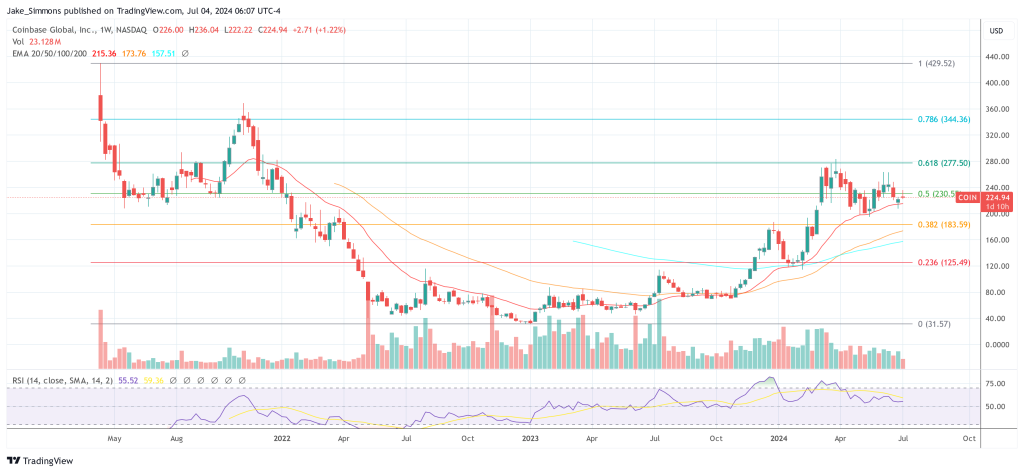In the ongoing legal battle between crypto exchange Coinbase and the US Securities and Exchange Commission (SEC), Coinbase’s Chief Legal Officer, Paul Grewal, has taken to social media platform X to voice his concerns over the SEC’s attempt to prevent discovery of communications from SEC Chair Gary Gensler. The legal tussle centers around a subpoena issued to Gensler, demanding documents from the SEC chairs communications, both in and out of his role at the SEC.
Coinbase Puts Gensler Under The Microscope
Grewal stated, “We have responded to SEC’s effort to block reasonable discovery from Mr. Gensler in a case that it—not Coinbase—chose to file. Democracy, as well as due process, dies in darkness. We appreciate the Court’s careful consideration of this matter.”
Coinbase’s legal challenge centers on acquiring communications from Gensler’s tenure as a prominent regulator and academic commentator, asserting that his dual roles have profoundly influenced the understanding and regulatory framework of digital assets. Their formal response to the SEC’s motion to quash the subpoena articulates that, “Over the past 15 years, Mr. Gensler has been not only the most prominent regulator but also the most vocal academic commentator, concerning the regulatory status of digital assets and exchanges.”
The documents requested in the subpoena are described as pivotal for understanding whether Coinbase had a reasonable opportunity to know how securities laws applied to its operations. The letter argues the relevance of these communications, stating, “Mr. Gensler’s communications regarding the regulatory status of digital assets and exchanges during his tenure as Chair go to the heart of Coinbase’s fair notice defense.”
It emphasizes the necessity of these documents to determine whether Coinbase, “a person of ordinary intelligence,” had “a reasonable opportunity to know” what the securities laws and those charged with their enforcement prohibit with respect to secondary sales of digital assets.
Coinbase also pointed out the SEC’s inconsistency, noting the agency previously argued in similar contexts that private communications of regulatory officials were relevant. The letter quotes a precedent, “As the Ripple court confirmed, a document or communication need not be public to provide insight into the public’s objective understanding as to what regulators require of them: agency personnel’s communications with market participants and interagency correspondence are all ‘relevant to the fair notice defense.’”
This comparison is intended to reinforce the argument that Gensler’s private emails and communications could shed light on his personal interpretations and the advice he may have offered informally regarding digital assets.
Coinbase’s submission stresses that these communications are likely to contain critical insights into the SEC’s approach and Gensler’s personal views, which may differ from the public and official stances. The letter asserts that the SEC’s refusal to even confirm the existence of such documents only heightens the need for their disclosure, arguing that without them, Coinbase is unable to fully articulate its defense based on fair notice.
At press time, COIN traded at $224.94.










